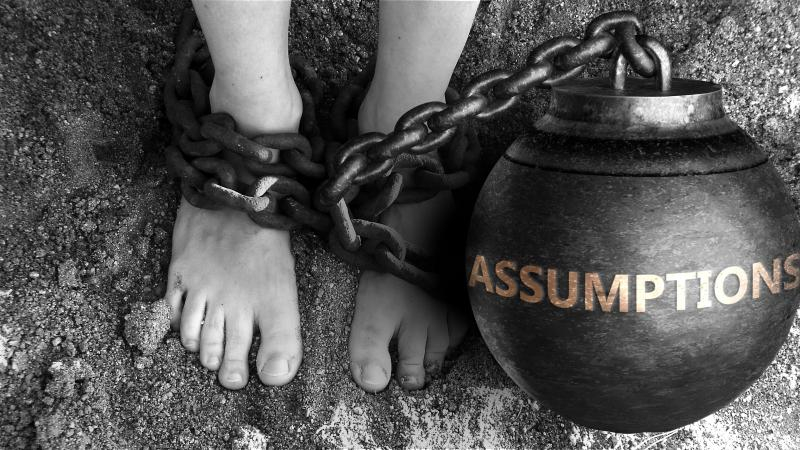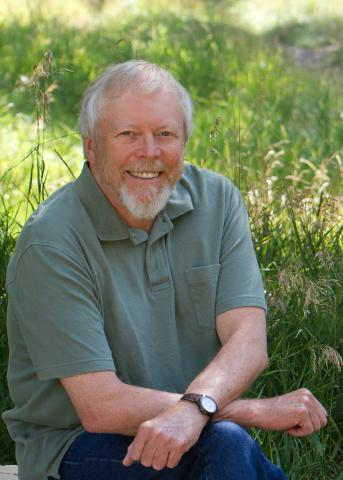Coaching About Fear: A Wellness Coaching Perspective

One of the biggest barriers to our success in life, or with our Wellness Plan is our fears. What holds us back from making the changes in our lives we know we need to make? How do we coach with someone around their fears while staying within our Scope of Practice? (https://nbhwc.org/scope-of-practice/)
Fears and Consequences
A recent joke goes: “The only people who like change are babies with wet diapers!” Change can be scary stuff. “What will happen IF I do this?” Your client may have some very realistic concerns about the potential consequences of them changing their lifestyle behavior. How will this change affect others in their household, workplace, or friendship circles? What will be the reaction of others? Will it be support or push-back? Will our client face rejection from their friends? Perhaps it is their own self-doubt and low self-efficacy that makes them fearful about trying again and failing. This may show up as ambivalence and a lack of follow through on commitments to Action Steps. When we inquire about what is holding the client back, they may answer “I don’t know.”
COACHING IT UP

When co-creating Action Steps to help your client achieve their wellness goals, ask: “So, what do you think will happen if you go ahead with this action step? What sort of reaction can you already anticipate?” Chances are good that your client already has an idea, or some fears, about how this new shift in their behavior might be received. That’s when you can work together to come up with some pre-emptive strategies for dealing with potential reactions to change.
The other thing to consider, especially if you sense a hesitation to fully commit to an Action Step, is to consider what Stage of Behavioral Change your client is really in. Perhaps they need to Contemplate or Prepare more before launching into Action. One of the best ways to increase the probability of success with an Action Step that involves other people is to prepare for that step by your client having a conversation with the parties involved. Getting their buy-in, their support, for the new behavior can be a godsend. Often more time in the Preparation Stage can alleviate fears.
F.E.A.R. False Evidence Appearing Real
Realistic fear is something we need to pay attention to. Self-preservation is a really good thing! There are times, though, when we are responding to the appearance of something instead of what it really is. Are we responding/reacting to the story we have made up inside our heads about something? Do we have enough information about it? Is the information we have reliable? (a great question in the Age of Disinformation) How things look at first is not always the reality we face.
COACHING IT UP

When our clients describe something that they fear, inquire about it. Instead of just accepting their immediate story about something, help them to get curious about it. What do they actually know about it? Are there gaps in their knowledge? Are they filling in the gaps with assumptions?
Whenever I perceive a possible assumption in my client’s talk, I will ask them “So, how do you know that to be true?”. When it is an assumption the client almost always says “Well, I don’t know it to be true, but I’m afraid it is.” Now you can explore their fears around that issue. What are they afraid of? A more gentle way is to request “So, tell me what it is you are concerned about.” It’s easier to admit concern than to admit fear.
Checking Out What If’s and Living with The Blank
The power of our thoughts is astonishing. Changing our thoughts alone, we can induce changes in our physiology, or I should say, our psychophysiology. This can give the stories we tell ourselves amazing power. Our imagination can run wild and catastrophic thinking can follow, and our bodies along for the ride.
Few ways of thinking can get this process going like the question “What if…?” Your client is worried about an interaction they did not fully understand. Perhaps it was a text or email from someone they do business with or is important in their life. “What if they mean this…? Well, that’s bad, but it’s even worse if they mean this…!” “What if” thinking can set off a full-blow stress response.
COACHING IT UP
When you hear the fears that arise from “What if” types of thinking, ask the client how, and when, they can check it out. Can they contact this other person and ask directly what they meant? Do they have more fears about doing that? How long might it be until they have the opportunity to check it out?
The problem is that we tend to “fill in the blank”. What we fill it in with is usually an assumption. We all know all of the comical and sometimes tragic sayings we have about assumptions! When a client is filling in the blank, we can urge them to “check it out”. Until that is possible, they may have to face the fact that they will have to “live with the blank” until they can verify what is really going on.
 Kai Zen and the Amygdala Hijack
Kai Zen and the Amygdala Hijack
Your client has come to the conclusion that a very significant change in their lifestyle has to take place. Perhaps they arrived there through their own exploration, your great coaching, the urging of their treatment team, or a combination of all of these. For your client, this change is not just significant, it is HUGE! They find themselves paralyzed by fear. We might say the prospect of such a profound or daunting change has hijacked a part of their brain. In his book One Small Step Can Change Your Life: The Kaizen WayI (https://www.amazon.com/Small-Step-Change-Your-Life/dp/076118032X), Psychologist Robert Mauer show us how the part of our brain called the Amygdala, where much of the Stress Response (Fight or Flight) is controlled, is fired up when we encounter the prospect of a huge change. How to get around such paralyzation is “the Kai Zen Way”.
COACHING IT UP
Your client is contemplating what to them is a huge and perhaps daunting task. They may have low self-efficacy when it comes to considering this change in their life. Perhaps their track record of failures stares them in the face. The Kai Zen approach is to avoid the so-called Amygdala Hijack by reducing the size of the task ahead. Instead it is a process of using small steps that do not trigger the Stress Response. It may even require a step so small that it appears irrefutably easy. “Oh, sure! I can to that!” Coaches are very familiar with the “baby steps” approach to success. As we read our client’s reaction to what they are considering we may detect this high level of fear and coach to find a way around it. Instead of the client who has been totally sedentary for years whose goal is to increase activity, immediately attempting to become a runner and shoot for completing a marathon, the task, the Action Step, becomes a commitment to walking for 15 minutes 2-3 times a week…or even less. We start at an easy level and build upon it as we begin to establish a new habit.
Fears Beyond Our Scope of Practice
Coaches can certainly work with most fears that people have. What is beyond the Scope of Practice of the coach are phobic fears, obsessive-compulsive fears, unrealistic or delusional fears. If you suspect that what you are encountering with your client is more in this territory, a referral to a mental health practitioner is in order. Unless you are a licensed mental health practitioner you are not qualified to do psychological screening. You may find that your client needs your help to work through the process of considering such a referral and following through to the completion of the referral. See my blog “Coaching a Client Through To A Mental Health Referral Using The Stages of Change”
 Michael Arloski, Ph.D., PCC, NBC-HWC is CEO and Founder of Real Balance Global Wellness – a world leader in health and wellness coach training (https://realbalance.com/). Doctor Arloski is a pioneering architect of the field of health and wellness coaching. He and his company have trained thousands of coaches around the world.
Michael Arloski, Ph.D., PCC, NBC-HWC is CEO and Founder of Real Balance Global Wellness – a world leader in health and wellness coach training (https://realbalance.com/). Doctor Arloski is a pioneering architect of the field of health and wellness coaching. He and his company have trained thousands of coaches around the world.








Only registered and logged in readers can leave comments.